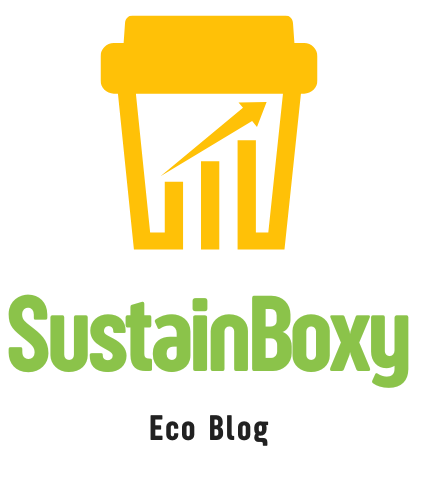Introduction
The surge in environmental consciousness has led many businesses to reconsider their packaging choices, particularly within the organic product sector.
Hemp-based packing materials are emerging as a sustainable alternative, offering both environmental benefits and functional superiority. This blog post delves into the multifaceted advantages and applications of hemp-based packaging in the context of organic products.
Understanding Hemp-Based Packaging Materials
Hemp-based packaging materials are crafted from the fibers of the hemp plant, a highly sustainable crop known for its low environmental footprint.
Unlike traditional packaging materials that often rely on petrochemicals and extensive processing, hemp packaging is biodegradable, recyclable, and can be produced with minimal chemical intervention. Hemp grows quickly, requires little water, and revitalizes the soil it grows in, making it an ideal source for eco-friendly packaging solutions.
The process of converting hemp fibers into packaging involves mechanical and chemical methods that preserve the natural integrity of the fiber. This results in a strong, durable packaging material that is naturally resistant to mold and ultraviolet light.
These properties make hemp-based packaging particularly suitable for protecting organic products, which often lack chemical preservatives.
Environmental Impact Comparison
When compared to conventional materials like plastic and styrofoam, hemp packaging offers a significantly reduced environmental impact.
Plastics, which are derived from fossil fuels, contribute to greenhouse gas emissions and environmental pollution due to their non-biodegradable nature. In contrast, hemp packaging naturally decomposes and can even contribute to the health of the soil during its breakdown process.
Studies have shown that if implemented on a large scale, hemp-based packaging could drastically reduce the waste produced by the packaging industry.
For instance, a life cycle analysis might reveal that hemp packaging reduces waste in landfills, minimizes energy consumption, and lowers overall carbon footprint compared to traditional packaging options.
Market Trends and Consumer Preferences
Current market trends indicate a growing consumer preference for sustainable and eco-friendly products, including packaging. Organic product consumers, in particular, are highly sensitive to the ecological footprint of the products they purchase, which extends to the packaging.
Hemp-based packaging not only aligns with these environmental values but also enhances the overall brand perception as responsible and conscious.
Data from consumer surveys could illustrate a positive reception towards brands that adopt sustainable practices like hemp packaging. For example, a significant percentage of consumers might express a willingness to pay a premium for products that are packaged sustainably, thereby incentivizing businesses to switch to hemp-based options.
Regulatory and Industry Challenges
Despite its benefits, the adoption of hemp-based packaging faces several regulatory and industry challenges. In some regions, hemp production is heavily regulated due to its association with cannabis, even though hemp contains negligible amounts of THC.
These legal barriers can hinder the supply chain and increase the cost of hemp materials.
Additionally, the hemp packaging industry is still maturing, with limited infrastructure compared to established packaging materials. This can lead to challenges in scaling production to meet large orders, and in maintaining consistency in the quality and supply of hemp packaging products.
Technological Innovations and Advancements
Technological advancements are pivotal in overcoming the challenges faced by the hemp packaging industry. Innovations in processing technology can increase the efficiency and cost-effectiveness of producing hemp-based materials.
For instance, developments in decortication technology, which separates the hemp fiber from the plant, are crucial for producing higher yields and better quality fibers.
Furthermore, research into blending hemp with other biodegradable materials could lead to new composites that enhance the functional properties of packaging. These composites could offer improved durability, moisture resistance, and insulation properties, making hemp-based packaging even more attractive to businesses and consumers alike.
Case Studies of Successful Implementations
Examining case studies of businesses that have successfully integrated hemp packaging can provide valuable insights.
For instance, a small organic tea company might have switched to hemp-based tea bags and packaging, resulting in increased customer loyalty and reduced carbon footprint.
These real-world examples highlight the practical benefits and encourage more companies to consider a shift towards sustainable packaging solutions.
Another case might involve a large cosmetics company that adopted hemp-based containers for its organic product line, seeing not only environmental benefits but also marketing advantages through positive consumer reception and brand differentiation.
Future Outlook and Potential
The future of hemp-based packaging in the organic product industry appears promising, with potential for widespread adoption as awareness and technology continue to evolve.
As more businesses recognize the long-term benefits of sustainable packaging, hemp-based materials are likely to become a mainstream choice, particularly in sectors that value ecological integrity and product purity.
Further research and investment into hemp cultivation and processing could lead to more efficient production methods, making hemp even more competitive with traditional materials.
The ongoing shift in regulatory landscapes, particularly in the legalization and decriminalization of hemp, will also play a critical role in the expansion of the hemp packaging market.
Conclusion
Hemp-based packing materials offer a viable, sustainable solution for the organic product sector, aligning with environmental goals and consumer expectations.
By overcoming present challenges and leveraging technological advancements, the potential for hemp as a key player in eco-friendly packaging is immense.




